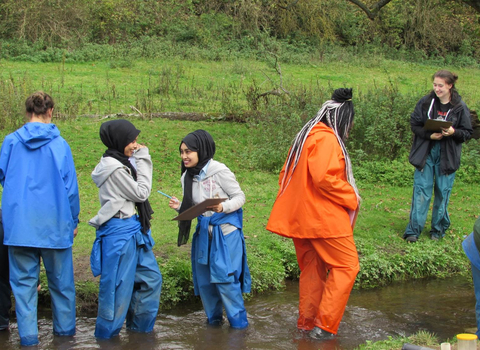“By 2025 we will aim to introduce a natural history GCSE, giving young people a further opportunity to engage with and develop a deeper knowledge and understanding of the natural world.”
This was the landmark promise launched in the Department for Education’s (DfE) ‘Sustainability and Climate Change Strategy’ back in 2022. Fuelled by the energy and passion generated from hosting COP 26, this first-of-its-kind commitment to bring nature, climate, and sustainability closer to the every-day lives of children through formal education felt like a major turning point.
But more than two years on the GCSE remains locked in a holding pattern, and the milestone of a 2025 first teach seems beyond our grasp. Stuck behind the significantly delayed public consultation, the GCSE has languished and lost momentum. Some say the calling of an election brought progress to a halt, but the reality is that the cracks had formed long before then. There’s a deeper challenge to tackle here, and a need to reinvigorate this new Government about the importance of bringing nature, climate and sustainability closer to children’s lives through education.
We’re not saying that nature, climate and sustainability is absent from the curriculum. In fact, research conducted with 300 people aged 16 to 30 by ‘Uprising’, on behalf of the Wildlife Trusts, cited a wide range of touchpoints within secondary education where these topics featured. In geography they learnt about the impacts of climate change such as global warming, the carbon cycle, and the impact of human activity on the environment. In biology, topics such as ecosystems, biodiversity, and the effects of climate change on various species were cited as key learning areas. Physics and chemistry were mentioned less frequently, but did include some relevant content, particularly regarding renewable energy and environmental impacts.
Combined with other avenues outside of formal lessons such as eco-clubs, recycling initiatives and participation in wider environmental campaigns, you’d be led to believe that we’ve got this all tied up. So why is it that less than 40% of respondents within the research felt they left their education with a solid understanding of nature and climate change? And why, in a recent survey of 3000 children conducted by Save the Children, did 70% of children say they are worried about the world they will inherit, and 60% felt that climate change and inequality are affecting their generation’s mental health in the UK? How can we expect this generation to shoulder the burden of being the change-makers of the future when they feel wholly unprepared and disempowered?
Clearly, something isn’t working and there is a gap to fill; is the GCSE the answer?
The importance of building a lasting, personal connection with nature to inform our future actions and decision-making cannot be understated. Caring deeply for the future of the natural world is different to simply understanding the mechanics of it. So perhaps this is where the difference can be made; if qualifications could also influence how we feel about something, and crucially, teach us about the different roles we can play to make a positive difference.
The Natural History GCSE claims to prioritise nature connection and bringing theory and experiential learning together to support our future leaders. Surely, it’s worth exploring.
Now, a small army of new ministers and advisors – new not only to their roles, but to the legacy left by their predecessors, hold the potential of the GCSE in their hands. The next step is for the DfE to release the long overdue public consultation, where you can have your say. What do you want to see in the GCSE? How can we ensure that this becomes a truly accessible way for students to both learn about, and connect with the natural world? Without the consultation, this opportunity will simply pass us by. We strongly urge the Government to take the next step and instruct DfE to launch the public consultation, unlocking the GCSE for the next stage of development.


